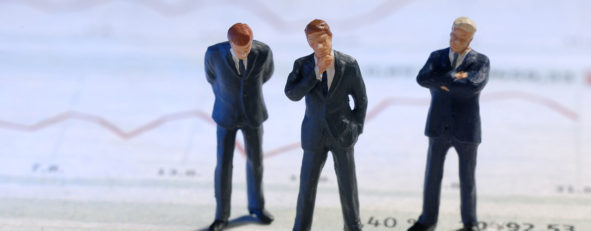A real estate bubble is a term that’s regularly used in the CRE industry. It’s usually referenced in terms of the aforementioned bubble bursting.
The real estate crash of 2007 is a clear example. The market got too big and, ultimately, crashed. As a result, the net worth of the US housing market dropped by $13 trillion from the pre-crisis peak in Q2 2007 and did not recover until Q4 2012.
But what is a real estate bubble? What causes one? What effect does it have on the commercial real estate industry and the wider economy?
What Is A Real Estate Bubble?
When we’re in a real estate bubble, property prices grow to a value well beyond the level that can be supported in the long-run by economic fundamentals, such as consumer income, corporate profits, and real GDP growth.
Eventually, the market switches from experiencing limited supply, increased demand, and rapid inflows of cash to either a sudden and rapid growth in supply or a steep drop in demand, driving property prices down sharply.
What Causes A Real Estate Bubble?
A real estate bubble could be fueled by any one of a range of factors. The root cause is usually surging demand during periods of limited supply. The rising prices can then be self-reinforcing, as they lead to expectations of still-higher future prices, driving further exuberance. Speculators then enter the market and demand continues to grow.
During economic booms, people have more disposable income to spend on housing. Low-interest rates and irresponsible lending practices can also contribute to a real estate bubble.
Between 2004 and 2006, the percentage of low-quality subprime mortgages increased from 8% to 20%, for example.

Source: Shutterstock
This causes a surge in property ownership and a sharp rise in housing prices. This means fewer people can afford what they previously could, before this period of tremendous growth.
Are We In a Real Estate Bubble Now?
There are signs we may be in bubble territory. For example, the average price of a new home has increased from $259,800 in 2009 to $386,100 in 2017, according to figures from the US Census Bureau.
More than half of Americans surveyed in 2017 also said they were worried that the real estate market is going to crash.
However, many of the forces that caused the 2007 crash are no longer present. For example, the number of subprime loans has dropped sharply and banks have raised lending standards. Interest rates are also low, by historical standards, although 30-year mortgage rates have risen to 4.83% from a near all-time low of 3.44% in 2016.
However, it is often difficult to identify a bubble until after it bursts. What is clear is that if demand for property grows faster than supply, price tends to rise. This situation only constitutes a bubble if the prices are well-beyond a level that can be sustained over the longer term.
Why Does A Real Estate Bubble Burst?
After consistent and rapid growth in the real estate market, there comes a point when buyers are not willing to pay as much for the properties on the market.
Many owners may borrow more than the property is worth, increasing debt. While economic conditions are good and confidence is high, both banks are able and willing to lend liberally and borrowers are able to make their debt payments. However, if either economics conditions worsen or confidence falls, then suddenly foreclosure rates begin to rise. This drives property prices down further and the market becomes saturated. Speculators, such house flippers are especially vulnerable to falling property prices, as just a small fall in value can suddenly lead to owning a set of mortgages that are larger than the asset value of the corresponding properties. Soon, selling can become self-reinforcing, causing both expectations and the underlying market fundamentals to turn sour, leading to a crash in real estate.

Source: Shutterstock
When Will The Real Estate Market Crash Again?
Professor Teo Nicholas from the Harvard Extension School predicts the next market crash will occur 2026. His work is based on another study that claims real estate booms and busts follow an 18-year cycle. Other sources predict the commercial real estate bubble is about to pop.
Are we even in a real estate bubble and, if we are, when will it burst? Analysts have struggled to come up with a definitive answer for some time.
The commercial real estate market is certainly in buoyant times. Office sales in the US have regained traction, 10 years after the recession. Deloitte recently predicted the volume of commercial real estate transactions will jump 13% in the next 18 months.
What this means in terms of a real estate bubble is difficult to quantify. To conclude with a statement from a recent Bloomberg report: “Private equity firms keep raising substantial war chests to acquire properties. It all suggests there are both buyers and cash waiting in the wings.”









